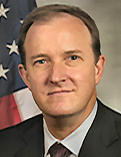 In tomorrow’s Federal Register, the Department of Commerce’s Bureau of Industry and Security will propose, as part of the export reform initiative, a new license exception called the Strategic Trade Authorization (STA). The new license exception will eliminate current license requirements for exports of a large number of items on the Commerce Control List to 162 destinations. The exact list of items eligible for this exception is not yet completely finalized because BIS has not yet designated “Tier 1” items, i.e., the most sensitive items on the CCL, all of which will not be eligible for this new exception.
In tomorrow’s Federal Register, the Department of Commerce’s Bureau of Industry and Security will propose, as part of the export reform initiative, a new license exception called the Strategic Trade Authorization (STA). The new license exception will eliminate current license requirements for exports of a large number of items on the Commerce Control List to 162 destinations. The exact list of items eligible for this exception is not yet completely finalized because BIS has not yet designated “Tier 1” items, i.e., the most sensitive items on the CCL, all of which will not be eligible for this new exception.
Countries not eligible for exports under License Exception STA include, not surprisingly, all the countries subject to complete or partial arms embargos, as listed here and including, for example, China, Venezuela, Haiti, Vietnam, Lebanon and Belarus. Ineligible countries also include countries not subject to any arms embargo, including the U.A.E., Malaysia, Qatar, Angola and Pakistan.
Exporters using License Exception STA will be required to comply with other conditions as a prerequisite to the availability of the exception, most notably a requirement that the exporter report exports using the exception to BIS under the provisions of § 743.1 of the Export Administration Regulations. Additionally, a special Destination Control Statement will be required for exports under License Exception STA.

 Posted by
Posted by  Category:
Category: 


 One of the stated goals of export control reform is to unify the export licensing systems used by the Treasury, Commerce and State Departments. Each system — except, of course, for Treasury’s dead-tree system — has it advocates with some rooting for D-Trade, the system used by State, and others rooting for SNAP-R, the Commerce System, to prevail in this war of the Titans. In fact, the winning licensing system will not be any of these but is instead an electronic licensing system that likely is completely unfamiliar to 99.9 percent of exporters.
One of the stated goals of export control reform is to unify the export licensing systems used by the Treasury, Commerce and State Departments. Each system — except, of course, for Treasury’s dead-tree system — has it advocates with some rooting for D-Trade, the system used by State, and others rooting for SNAP-R, the Commerce System, to prevail in this war of the Titans. In fact, the winning licensing system will not be any of these but is instead an electronic licensing system that likely is completely unfamiliar to 99.9 percent of exporters. As the troubled Washington Times enters into what may be its
As the troubled Washington Times enters into what may be its 


